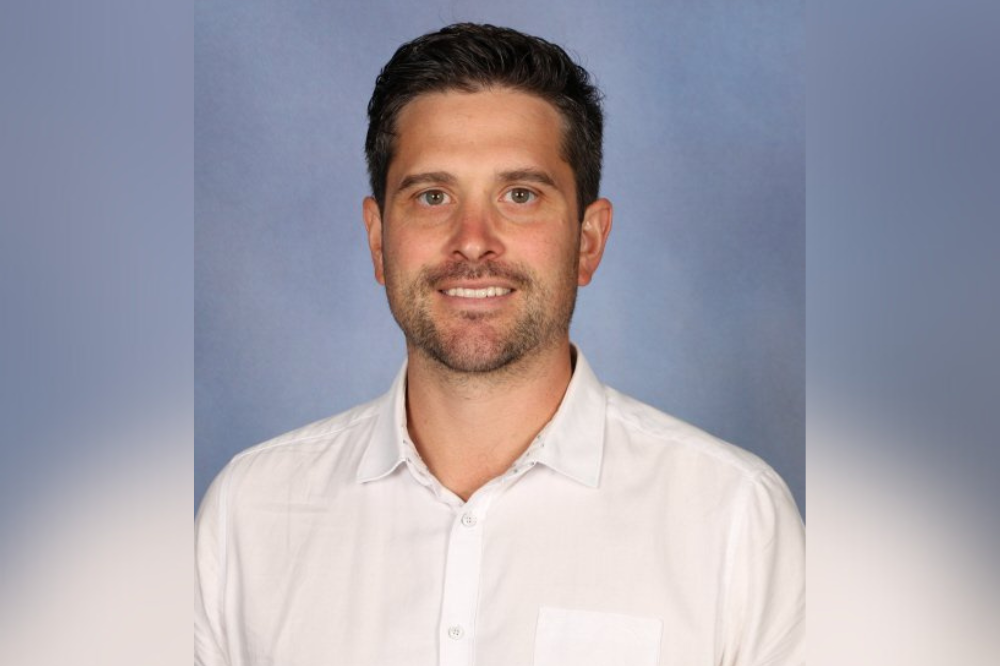
When a student equates you with Superman, you know you’re doing something right.
For teacher Andrew McCausland, being equated with such a beloved superhero is a very special recognition of the profound influence he has on the lives of his students.
This deeply touching moment began when one of his students, Madeline, presented him with a special gift – a handcrafted card adorned with a drawing. The image depicted McCausland as Superman, with the words “you’re a super teacher” emblazoned at the top.
As part of the government’s 'Be That Teacher' campaign, McCausland story, alongside those of many other inspiring Australian educators, shines a light on the indispensable role teachers play in shaping young minds and hearts.
Indeed, McCausland's approach to teaching, rooted in empathy and preparation, exemplifies the impact a dedicated teacher can have, not just on academic success, but on the overall wellbeing and development of their students. His ability to connect with students, understand their needs, and adapt his teaching methods to suit individual learning styles highlights the essence of effective and heartfelt education.
Catching students before they have a chance to fail
At the core of any close teacher-student bond is empathy, and for McCausland, the journey of teaching always begins with this key ingredient, long before the lesson starts.
McCausland said that before teaching his classes he first reflects on what that lesson is going to look like.
“This involves me identifying where potential misconceptions will arise, will they understand the terminology, or where are students going to disengage because the task is too hard,” McCausland told The Educator.
“By being aware of these potential barriers to success allows me to prepare for them and adjust my teaching and my students feel that I understand them and can catch them before they have a chance to fail. Preparation is key.”
McCausland says he can then focus more closely on the individual level.
“In some cases, it is about identifying individual students’ motivation to learn or push through the struggle, and knowing that students are either intrinsically or extrinsically motivated,” he said.
“In a lot of cases my students are extrinsically motivated, they need that constant praise, high fives, class rewards, whilst others don’t necessarily need that as much.”
A writing success story
McCausland said that by knowing what his students need on a social and emotional level, he can make “greater deposits” with those students and build their confidence and enjoyment in learning.
“I was working with a student who would often become disengaged during the writing of different genres,” McCausland recalled.
“They were often unable to write down any content because they didn’t know what to write and didn’t have any confidence in their writing.”
Throughout the early parts of the year, McCausland learnt about this student’s interests and hobbies, providing him with the foundations required to get this student writing.
“When we were doing narrative study, this student was unable to write anything down, so I sat with them and was flexible in my teaching. I told them to ignore the provided writing stimulus and write a narrative about their own interest,” McCausland said.
“We discussed the characters, problem, and solution all linked to their interests and built excitement about the writing task.”
Suddenly, the student was writing and filled with enthusiasm, McCausland said.
“By making a quick easy adjustment in my lesson for a student’s needs and doing the groundwork early to get to know this student I was able to significantly impact their learning experience in writing,” McCausland said.
“They now have self-belief in their writing ability and will attempt writing stimulus shared with the class.”
McCausland’s advice for new teachers: Start by building relationships
McCausland said the government’s ‘Be That Teacher campaign’ has helped him reflect across his teaching career, in particular the importance of relationships and safety.
“Building relationships and creating a safe learning environment is the most important thing that you can do, without them learning can’t happen effectively. Spend the time building relationships early on,” he said.
“By building relationships, you are fostering psychological safety where the students trust you and feel safe taking risks in their learning and sharing their understanding. You also get to know them and what they need to have success in the classroom.”
McCausland also highlighted the importance of teachers developing emotional intelligence.
“Teaching students how to recognise, understand and manage their emotions, creates a safe learning environment where student are in control of their emotional responses,” he said.
“By teaching students how to manage their emotions they are able to transition from an emotion that isn’t going to foster learning, to one that is.”


